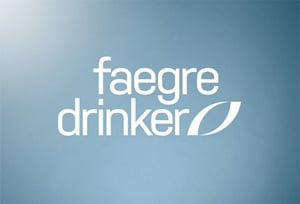U.S. Supreme Court Issues Favorable Decision for Pro Bono Client in Deportation Case
The U.S. Supreme Court issued its opinion on Mellouli v. Holder on June 1, resulting in a favorable outcome for Moones Mellouli, a pro bono client of Faegre Baker Daniels, the University of Minnesota Law School Center for New Americans, and the Immigrant Law Center of Minnesota.
The Supreme Court was asked to decide whether a lawful permanent resident can be deported for possession of drug paraphernalia in the absence of any proof that the paraphernalia is related to a substance listed in the Federal Controlled Substance Act. In 2010, Mellouli was charged and convicted of possessing paraphernalia in the form of a sock. He was deported without the federal government having to show that the sock contained a controlled substance on either the state or federal controlled substance schedules.
The case was argued before the Supreme Court by Jon Laramore, former FaegreBD partner, on Jan. 14, 2015. Business litigation attorneys Daniel Pulliam, associate, and Lucetta Pope, counsel, co-led a cross-office team of more than 30 professionals on the case. The partnership between FaegreBD and the Center for New Americans has been led and overseen by Dianne Heins, the firm’s pro bono counsel and director of pro bono and community service.
The Ruling
Accepting Mellouli’s argument, the court ruled 7-2 that a legal permanent resident may not be deported for a drug conviction unless that conviction necessarily involves a drug covered by the federal Controlled Substances Act, which Mellouli’s conviction did not.
Mellouli’s paraphernalia possession misdemeanor conviction was not associated with any particular drug, so under the court’s ruling his deportation based upon the conviction was unlawful. As the court held, “the government must connect an element of the alien’s conviction to a [federally controlled substance].” The court rejected the Justice Department’s broad reading of the federal deportation statute, holding that it stretched the statute’s text “to the breaking point” and led to consequences Congress could not have intended. The court’s decision is likely to preclude deportation of thousands of legal residents with low-level drug convictions.
“We are gratified that the court accepted our reading of the statute, which allows our client to return to the U.S. and join his fiancé,” Laramore said. “The court not only reached the result we sought; it agreed with our assessment that the government’s broad interpretation of deportation law was a misreading of Congress’ intent. It has been a pleasure for Faegre Baker Daniels to collaborate with the University of Minnesota’s Center for New Americans on this matter.”
FaegreBD is proud to partner with the Center for New Americans on this case, sharing in their mission to expand legal services for noncitizens, improve our nation’s immigration laws and educate noncitizens about their rights. University of Minnesota Law School students were engaged throughout this case in aspects ranging from legal research to brief writing to preparing Laramore for oral argument.



